From the mine shafts to the ballot paper: Elton’s Albania
Miner Elton Debreshi has shaken up the paradigms of unionism and elections in Albania.
This year, on a January day, the living room in the home of Anjeza and Elton Debreshi was packed with guests. Anjeza’s husband, Elton, had gathered fellow miners, his father and a professor from Tirana. Amid the racket, she heard a conversation that caught her attention. There was talk of the possibility of Elton running for minister of parliament (MP) in the Albanian Parliament in the April 25 elections. Anjeza could not believe her ears; not because she did not trust her husband, but because she was afraid for him.
“It’s alright at the mine [his involvement with the miner’s union], but [running] for MP? These [politicians] are dangerous,” was the thought that immediately came to Anjeza. But she did not utter a word at that moment and was surprised that Elton had not mentioned that he was considering running.
That night, before going to bed, she reminded Elton of the responsibilities they owed their four children, of the year before when he had been out of work for about seven months, and the family’s long-standing financial problems. The 31-year-old miner from Bulqiza was convinced of his decision and all he cared about was whether he would succeed. He was well aware of Anjeza’s concerns about his safety and economic hardship, including the 5,000 euro loan she had not yet paid off.
“Every day when I go to work I hug my wife and children, because I will go into the mine and I may never see them again. And it’s not just me, but hundreds of other miners too,” Elton says, adding that he is not afraid of calling out names, especially knowing that he faces danger daily by working in the mine.
In order to improve the rights of miners, on November 22, 2020, the United Miners of Bulqiza Trade Union (UMBTU) announced that it had started collecting signatures to establish the Status of Miners in Albania. The Bulqiza union insisted that the miners had been “dragged around and deceived for 30 years by the old parties and unions” and demanded security and guaranteed rights through the status. The requirements of the UMBTU miners were: Legal recognition of the mining profession, compensation for accidents and deaths in the workplace, higher salaries and pensions for miners and above all, safety in the workplace.
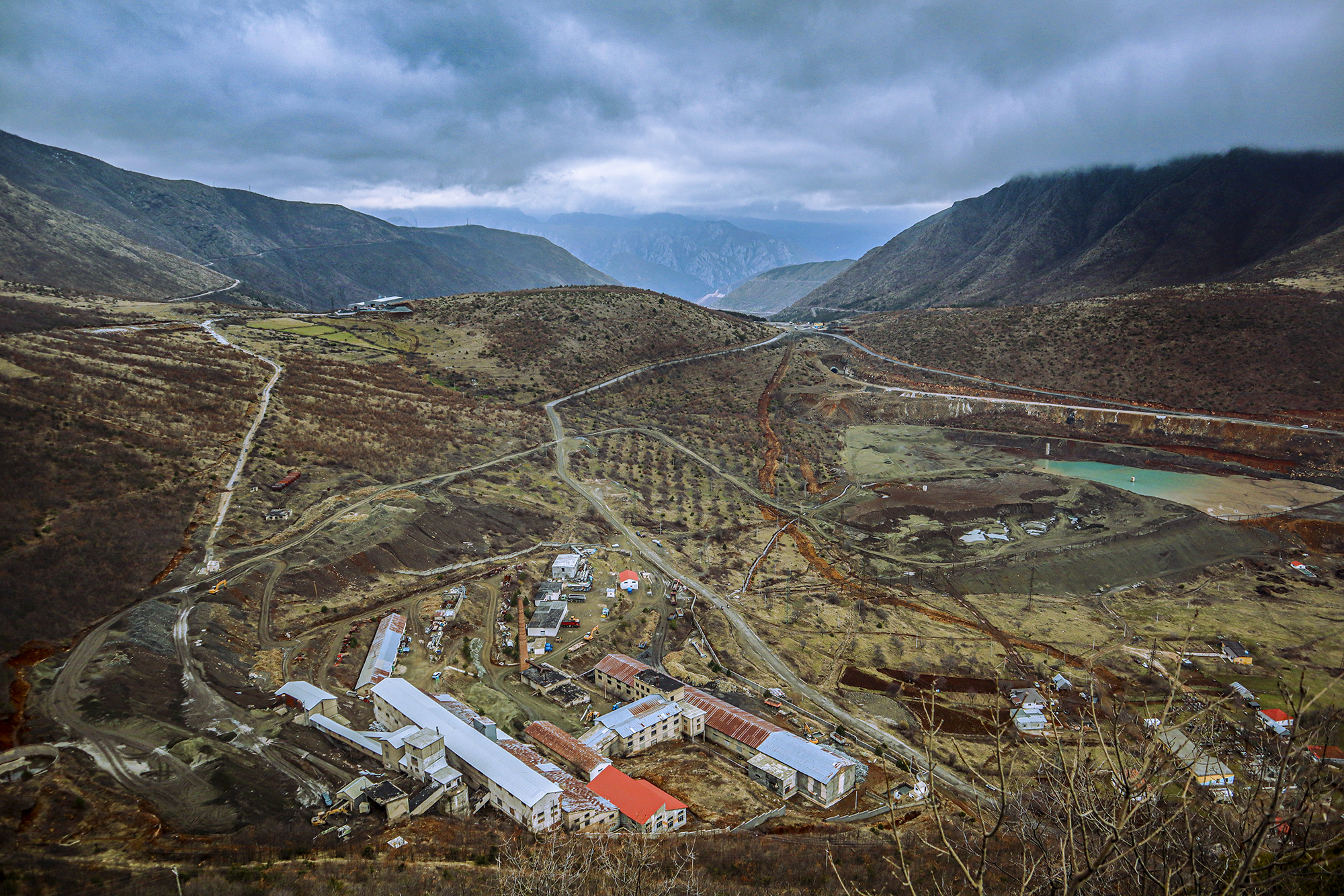
In November 2019, Elton had been elected head of the UMBTU and had taken over delivering the petition. Although he knew the difficulties of this commitment, he hoped that with their efforts they would achieve something. A year later, the miners set up petition stands for the Miner Status in Bulqiza, Dibër, Martanesh, Klos, Kamza and other mining cities, as well as Tirana. By January 2021, they managed to collect about 11,000 signatures from citizens.
“We did not expect this kind of support,” Elton recalls.
The support of the citizens and their willingness to sign the petition aroused a new desire among the trade union miners: To have an MP candidate from their own ranks. Based on the experience of establishing the UMBTU, Elton knew very well that the road ahead would be difficult, but despite this he accepted the decision of the miners and other supporters.
He became the Bulqiza miners’ candidate for MP in the Albanian Parliament.
New attempts to change the old
In 2007, Elton’s family’s dire economic situation forced the 16-year-old to drop out of school and move to Greece. During the three years he spent in Athens, he worked in the construction sector, but eventually lost his job. During the global economic crisis, the Greek state was struck by economic hardship, which resulted in hundreds of thousands of people losing their jobs, with the construction and assembling sectors being hit especially hard. In 2010, Elton returned to his hometown and met Anjeza the same year.
“You have nothing to do but work as a miner in Bulqiza,” he said. “All the townspeople know this. “We have no other options, so we are forced to drop out of school as children.”
The town, which is located in north-east Albania, is built entirely around the chrome mine. In the village, chromium began to be extracted during the Italian fascist occupation, around the late 1930s, when chromium was taken from the surface and delivered to Italy. After the end of the second world war, sometime in 1948, the mine began operating under the Albanian communist government. In the following decades, the technology to scan and extract chromium advanced and the metal was mined in abundance.
With the fall of the Albanian communist regime in the early 1990s and the beginning of the democratic transition, as well as free market economic reforms, the mines in Albania were placed under the management of private companies, as the Albanian governments began to grant public assets through concessions, meaning that they were operated by companies for certain periods of time.
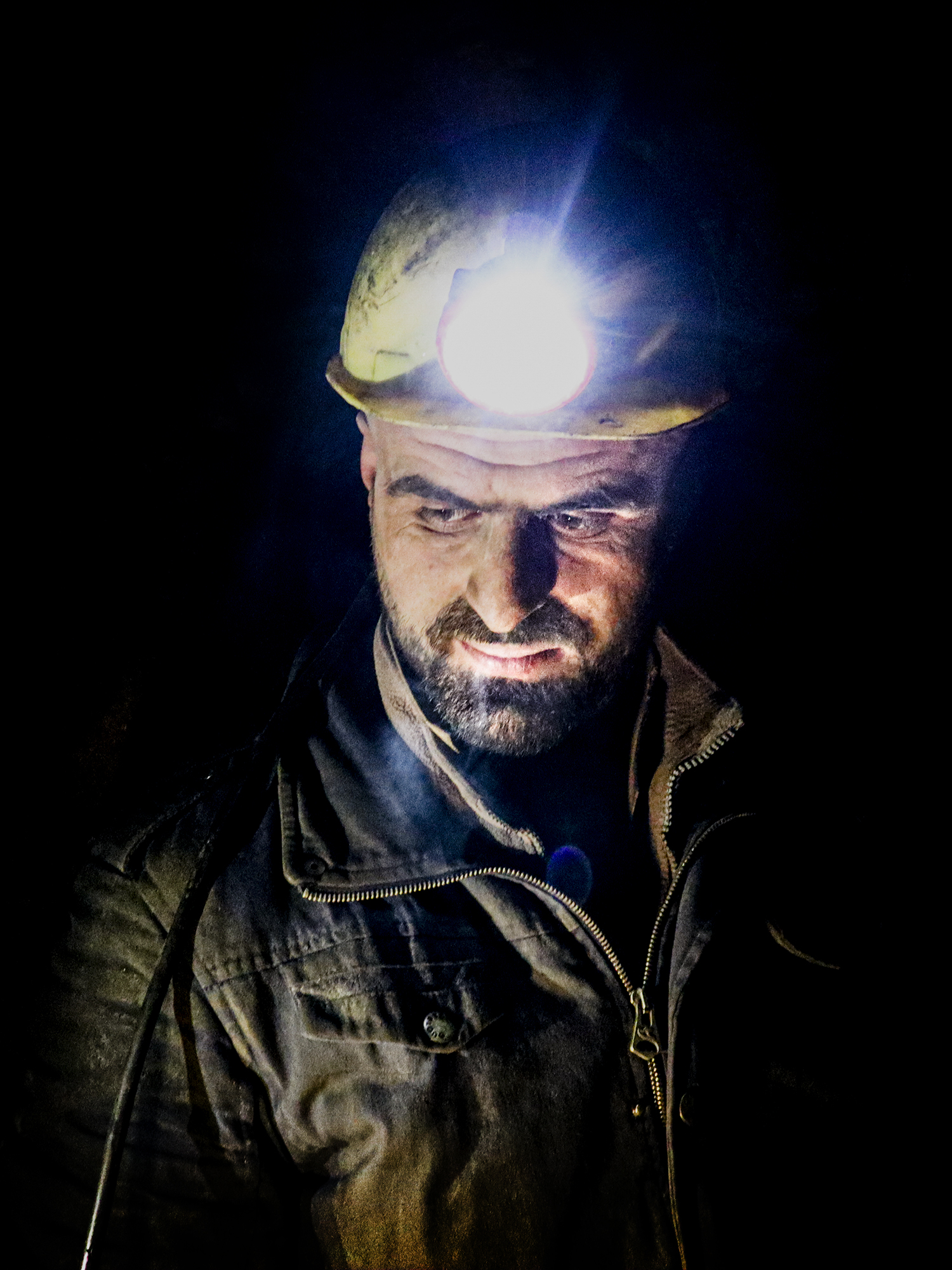
"The [emergency] Tirana-Bulqiza helicopter line became like a mini coach," Elton says.
Mining in Albania continues to be prosperous to this day. Thousands of tons of chrome are extracted every year and thousands of miners are employed. Elton started working in the mine in 2010 — while working, he would watch fellow miners be maimed and injured, and in some cases even witness their deaths.
“The [emergency] Tirana-Bulqiza helicopter line became like a mini coach,” Elton says, remembering his experiences as a miner.
After three years of working in the Bulqiza mines that were owned by various businessmen, in April 2014, Elton was hired as a miner at Albchrome. The company, which is part of the Balfin Group, had taken over most of the chrome mines in Bulqiza. Balfin Group is one of the largest private investment conglomerates in Southeast Europe.
At the time, rumors were circulating in Bulqiza that the Albchrome company, owned by businessman Samir Mane, would invest in the mine for better working conditions, increase miners’ safety and wages, and introduce other benefits for the miners. Elton, hoping that these rumors would become true, changed jobs — and his hopes were soon turned into disappointment.
The owner of the Balfin Group, Samir Mane — who is considered to be one of the richest people in Albania — soon became the center of criticism and worker revolt, especially among political activists and trade unionists, who claimed that Mane had accumulated his wealth to the detriment of workers’ rights. Many of them started calling him an oligarch.
Over the years, miners from time to time protested about the lack of proper working conditions and even inappropriate treatment, but their mobilization was consolidated when they organized their opposition to the old unions as well. According to Elton and several other miners, those unions rarely sided with the miners.
In fact, unions are constantly criticized in Albania for their failure to protect workers. Journalist Besar Likmeta from BIRN says that “old unions” should be seen through the politics-history-economy trichotomy.
“The trade union organization in Albania has a [key] problem because it is the successor to the communist unions [of Enver Hoxha’s regime],” he said, adding that they only served the interests of the regime’s bureaucrats. “Even when they returned, after the fall of the Hoxha regime, they continued to benefit from official power. “These unions were corrupted very quickly [by the new political system].”
Reporteri.al, which is part of the Balkan Investigative Reporting Network, where Likmeta works, over the years has conducted research showing that large number of injuries or deaths of miners, are not investigated at all; or even if they are investigated and go to court, often miners are blamed for their deaths or injuries. Likmeta believes that the division of unions between political parties, the corruption of a number of them, as well as the failure of the justice system are among the main factors that have influenced the birth of new unions.
Given the accidents where miners from Bulqiza died or were maimed for life; the low salaries of miners; and the silence of politicians and trade unionists, in 2019 Elton and about 30 other miners decided to establish a new miners’ union in Bulqiza. Both the employment relationship and the organization of trade unions in Albania are regulated through the Labor Code of Albania, where the establishment of a trade union requires the approval of the court.
With almost half of the signatures from miners contracted by AlbChrome, the Bulqiza workers went to the Tirana Court to be approved for the right to establish their own union. The legal proceedings required a person to take over the submission of the request and this task was taken over by Beqir Duqiri; a miner since 2007 and an employee of the mines managed by Albchrome since the company took over the management of most of the Bulqiza mine in 2014.
Beqir, too, was quickly disappointed, saying that the company's investments "only increased the workload and did not benefit the miners, but the company.”
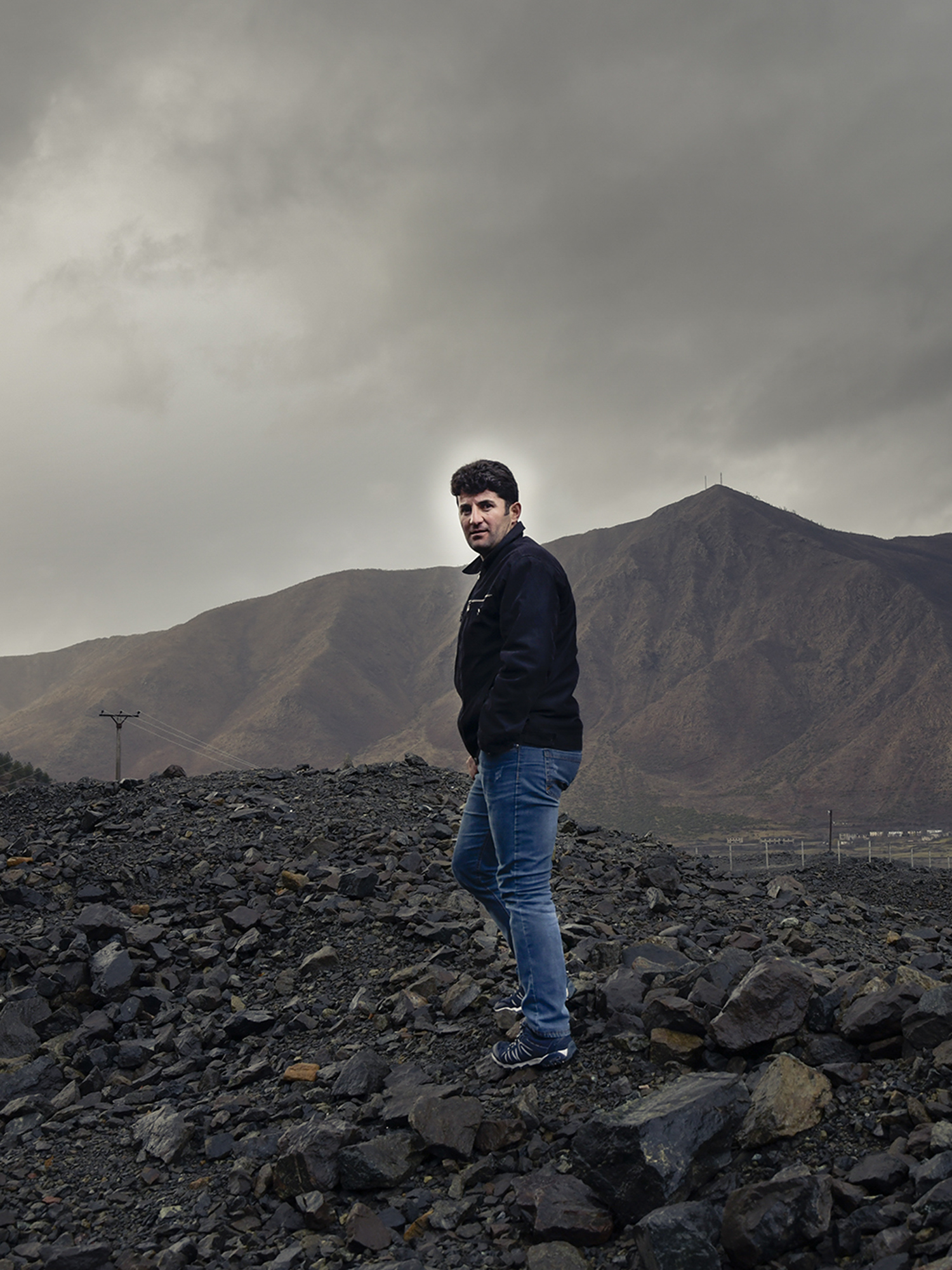
“The truth is, the company only invested in increasing the depth of the well [of the mine] and did so for its own profit,” Beqir says, who, like Elton, believed that with the arrival of AlbChrome, the working conditions and benefits for miners would increase. He, too, was quickly disappointed, saying that the company’s investments “only increased the workload and did not benefit the miners, but the company.”
Both Beqir’s father and grandfather, as well as Elton’s father and grandfather, worked in the Bulqiza mine. Elton, the chairman of UMBTU, is even more revolted by the fact that his father, even though of retirement age, had to return to the mine, as the miner’s pension does not even meet the minimum living requirements. Therefore, he has tried and insisted on advancing the approval of the Miner Status where, among other things, it would increase the pension, recognition of occupational disease, and reduce the retirement age.
“I could not allow what happened to my father and grandfather to happen to the third generation too,” Elton says, recalling that his grandfather had worked in the mine since the Bulqiza chrome mine started extracting chrome “vertically.” His father had worked there for the last three decades, as did one of his brothers.
“Miners get seriously ill, so something has to be done,” Elton says.
The alignment of opinions about AlbChrome and stories of the Bulqiza miners caused Elton and Beqir to connect even more. Their aspiration for a new union was legalized on October 15, 2019 by decision of the Court of Tirana. A month later, Elton and other miners announced the establishment of a new union at a rally of Bulqiza residents.
Initially, the Trade Union Council was created, Elton was elected head of the union, while Beqir was appointed treasurer of the UMBTU. These positions soon caused trouble for both of them.
A few days later, Elton says that he was called to the Albchrome offices in Bulqiza, where he was asked to explain the reason for the union’s establishment, which the company did not know about, as they were already under contract with the Federation of Trade Unions of Industrial Workers of Albania. At the same time, Elton says he was asked to report to AlbChrome headquarters in Tirana.
According to him, he heard almost the same talk in the Tirana office, but they also mentioned “some complaints about absenteeism.” Debreshi admitted some of the absences, saying that one of his children was sick and that he had informed his superiors in a timely fashion, as evidenced by the medical reports of the check-ups.
On November 23, 2019, Elton says that he was notified by AlbChrome that he was fired for not respecting his working hours. This prompted the young unionists from the Bulqiza mine to urge the miners to go on strike, and most of them accepted the call. On the second day of the miners’ strike, the company called Beqir in for an interview. He was informed that he was also fired — while over the course of the next few weeks, two additional miners, who were part of UMBTU, Behar Gjimi and Ali Gjeta, were also fired. (K2.0 sent questions to AlbChrome, but they did not respond).
On November 26, 2020, the independent state institution of the Commissioner for Protection from Discrimination (CPD), found that miners Beqir Duriqi and Behar Gjimi had been “fired precisely because of union affiliation.” But after an appeal from Albchrome, the CPD overturned the decision.
The UMBTU clashes with the management, the old union, and the Albanian government continued throughout the pandemic year of 2020. Initially, the unionists asked the government to stop work in the Bulqiza mines due to the risk of COVID-19 transmission, and demanded that the company and the government financially compensate the miners. Although Albania was partially quarantined, the miners continued to work.
The only reaction from the Albanian government was the cancellation of the “mining rent” for mining companies in Albania — a monthly rent that the mining companies pay to the Albanian government.
Such policies that favor companies instead of workers, especially the gentle treatment of businessmen and companies that operate state-owned properties and companies, public and social, have also been part of the workers’ revolts in Albania.
The journalist Likmeta mentions the economic method often used under the governments of Prime Minister Edi Rama, that of Public-Private Partnerships (PPP).
With PPPs, the government signs contracts with private companies, where it leases public properties and services, or grants them to private companies for management with long-term contracts if they invest certain sums of money — whether in infrastructure, equipment, or the performance of other services. However, this approach has often been criticized by activists, journalists and economic experts, according to whom the contracts are often not respected by private companies.
“Concessions, privatizations and the growth of political parties are interrelated,” says Likmeta, who believes that abuse of privatizations, concessions and bankruptcies of state-owned, public and socially-owned companies have also contributed to the emergence of new unions.
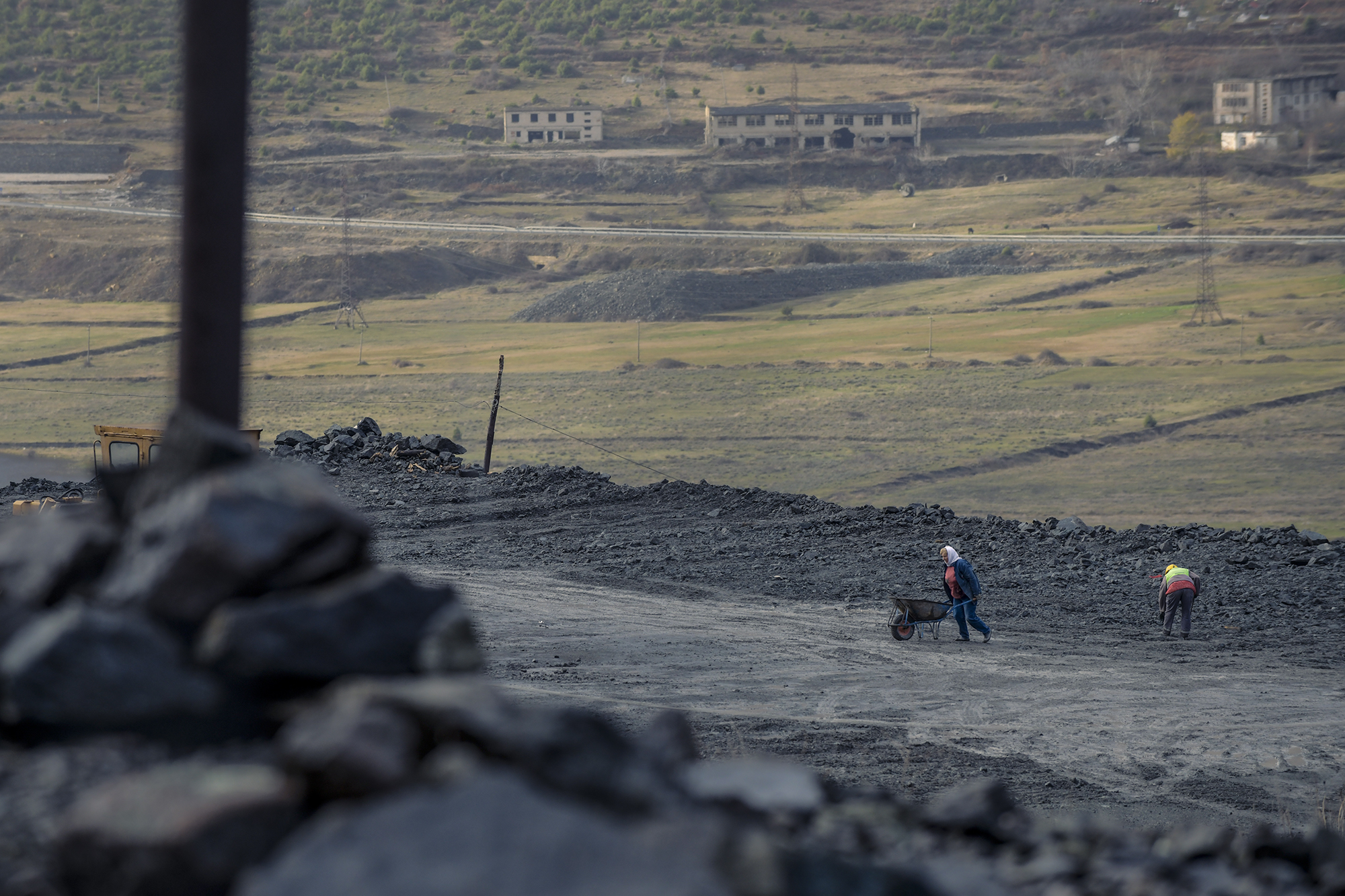
Beyond PPPs, Prime Minister Rama has often been criticized for his harsh rhetoric toward workers in Albania. During the first years of his first term, 2013-2017, he referred to Albanians as “lazy” and said that “there are jobs in Albania, but there are no professionals.” Later, on an official visit to Italy in 2015, Rama told Italian businessmen to come and invest as “there are no unions in Albania.” Recently, in a meeting with an owner of a textile factory in Shkodra, Rama said that workers in Albania could be replaced by cheap labor from other countries.
“With this salary that you have here, you can secure foreign workers from Bangladesh [or] from Afghanistan, from India. They do it pronto, they do not even speak Albanian and do not gossip. “As soon as they start learning Albanian, they need to be replaced because they fester, [they start talking about] politics, democracy, I said this and you said that,” is what Rama said about the maltreatment of workers, causing a great deal of commotion.
Despite these statements, in the parliamentary elections in late April 2021, the Socialist Party led by Rama, won enough votes to govern alone for the second time. Thus, he is the first in Albania after the ’90s to enjoy three consecutive terms at the head of government.
However, the April 2021 election campaign was slightly different than usual.
On the eve of elections
On January 14, 2021, the UMBTU led by Elton submitted a petition for recognition of the Miner Status to the Albanian government institutions, but the petition was ignored. Despite this, the union’s miners were excited by the signatures supporting them and the words they heard from fellow citizens during their collection.
Miner Luli Alla, who is part of the UMBTU Trade Union Council, also attended Elton’s home meeting, where it was discussed that the union should propose a candidate for the April 25 parliamentary elections.
“It was up to Elton [to run]. He is capable and a man of his word — I have known him since he was a child,” says Luli, a 38-year-old miner who is one of the founders of UMBTU. From day one, he was committed to Elton Debreshi’s “Joint Struggle” election campaign, which he says “sought the trust and not the vote.” “We visited 150 villages and many people gave us their trust.”
The “trust” that Elton sought from the Bulqiza residents, according to his campaign, was intended to convince them of his reliability and commitment. But the use of this idea — a similar one was used in connection to the resolution of blood feuds — received some criticism for its oppressive “masculine” connotation.
However, there is some consensus that Elton’s candidacy for MP in the District of Dibra — which includes Bulqiza, Dibra, Mat and Peshkopi — brought novelty to the Albanian political scene. The “Joint Effort” was one of the few political platforms that focused on workers’ issues and problems, something that had not happened in three decades after political pluralism was introduced in Albania. Since the 1990s, Albania has been governed in rotation by the Democratic Party (DP) and the Socialist Party along with the Socialist Movement for Integration (SMI).
Rama won his first term under the Rilindja (“Rebirth”) program and ruled together with Ilir Meta’s SMI — although once fierce opponents, Rama appointed Meta, the leader of SMI, as the President of Albania. In the years between 2013-2017, Rama promised to eradicate corruption from state institutions, to reform the justice system, to develop the economy in Albania and to launch projects and investments for justice and social equality; he even promised to approve Miner Status in his first term as prime minister.
Many of Rama’s promises of “rebirth” are considered unfulfilled. Accusing the SMI of sabotaging the Rebirth projects, he sought a second term, saying he needed a “single wheel.”
He also won a second term in 2017-2020, but this time opposition to his rule intensified, especially over the decline of civil rights, tendencies to impede freedom of expression, and favoring “corporations through non-transparent bargaining behind closed doors, and granting unusual concessions.” These objections began to be articulated and manifested through street protests. Students, textile workers, oil workers, miners, feminists and high school students often took to the streets to oppose Rama’s rule. Also, during these years, new unions were added to those of the miners. Among them were unions for call-centers, oilmen and textile workers.
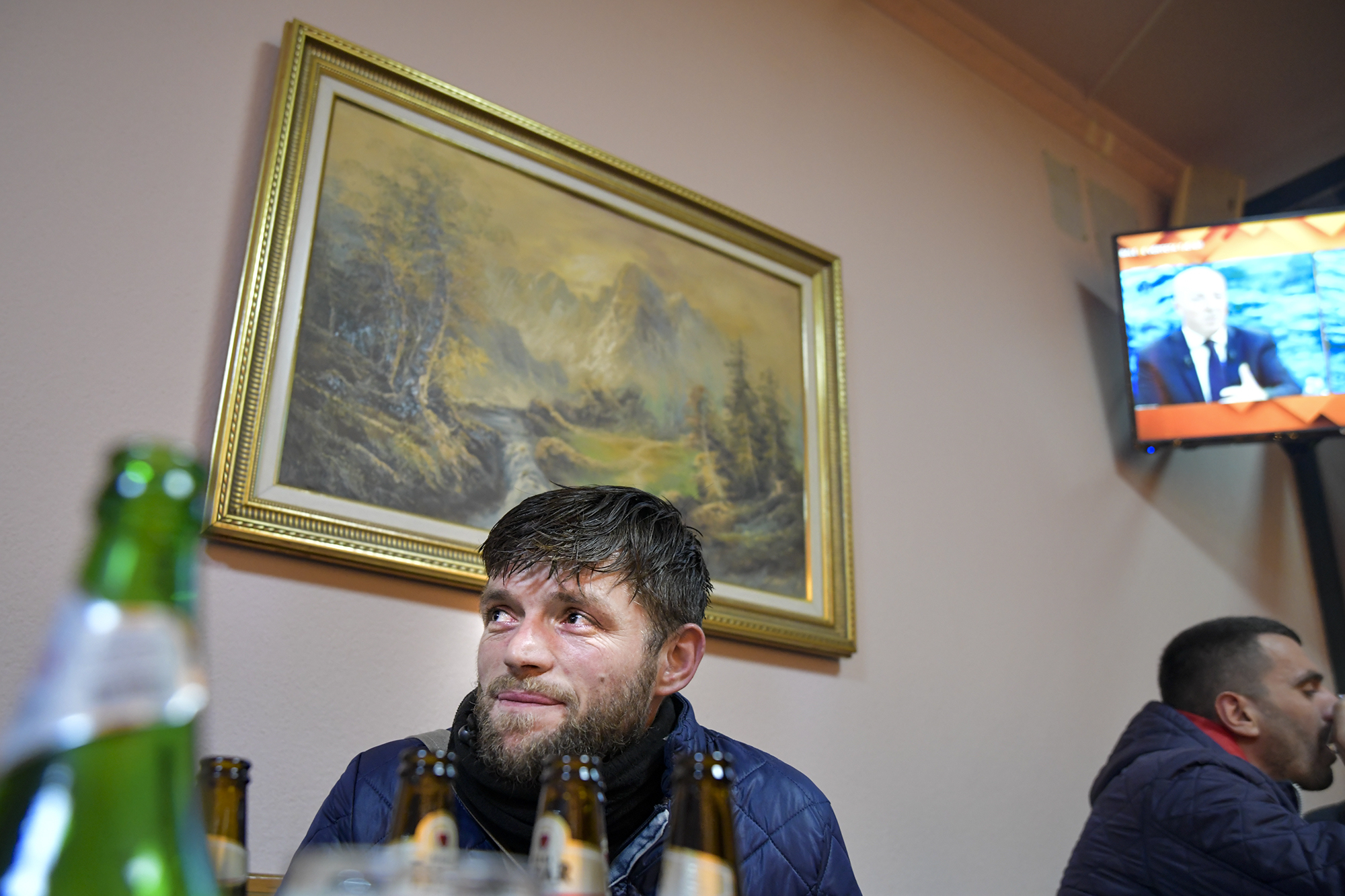
"The whole district of Dibra would benefit from the Miner Status,” Alla says.
Luli was also a regular in the protests and strikes, and in addition to his engagement with the union, he was also active in Elton’s campaign. Luli continued working in the mine and after finishing his shift, he would join union leader Elton in the afternoon distributing leaflets, campaigning in remote villages in the Dibra District, or talking to Dibra residents about the importance of electing a miner MP.
“The whole district of Dibra would benefit from the Miner Status,” says Luli, who adds that the approval of the Miner Status would be valid for the whole of Albania, as that would allow for other workers’ movements to start across the country.
Bora Mema was also part of Elton Debreshi’s campaign. Mema, who is an activist in the Political Organization (PO), a volunteer-based left-wing movement, was introduced to Debreshi in 2019, when the miner asked to meet with activists from Tirana through a Bulqiza journalist. Elton had seen PO activists on television and was impressed by how they “bashed all parties.” After meeting the activists from Tirana, Debreshi told them that he wanted to meet professor Arlind Qori — who he did not know was part of the PO and was at Anjeza and Elton’s in January when Elton had decided to run.
This is where the relationship between Debreshi and PO started.
“I was more active in education issues, but after that I began to be interested in workers’ problems,” Mema recalls about meeting the miner — a meeting that increased her commitment to raise her voice for workers.
The organization, which was founded about seven years ago, has organized numerous protests, campaigns and petitions. PO activists were among the organizers of student protests in December 2018, where thousands of protesters occupied Tirana and demanded, among other things, halving tuition fees, improving living conditions, greater student representation in decision-making and vetting for professors and directors of public universities. The PO also occupied university premises, strongly opposed the Law on Higher Education, which according to them favored private universities over public ones; and campaigned to boycott certain businesses, or oligarchs as they call them, as these businesses oppress workers.
In an attempt to help Debreshi’s campaign, some PO activists relocated to Bulqiza for a month, including Mema herself.
“Nobody really expects that anyone will rent an apartment in Bulqiza,” Mema says, remembering the apartment they rented in Bulqiza along with tens of other PO activists, adding that most of Elton’s campaign was organized voluntarily.
Debreshi’s candidacy, with the slogan “Let Dibra speak so that Tirana listens,” drew international attention and found support in several European countries. The International Trade Union Confederation — consisting of 40 European unions and syndicates — saw the possible victory of the miner from Bulqiza as an opportunity to launch new political representation in European countries. Aside from that, some European political parties and individual politicians issued statements of support, visited Bulqiza and the unionists and held discussions with Elton Debreshi.
“Very glad to report that in Albania a new and incredible movement is forming. Here is Elton Debreshi, of the United Miners of Bulqiza Trade Union (SMBB) of Albania. Watch their video and support their struggle alongside the Progressive International,” is what Yanis Varoufakis, former Greek Foreign Minister and now head of the left-wing Greek parliamentary party MeRA25, European Realistic Disobedience Front, tweeted.
Elton was also supported by Inva Halili, a member of Die Linke (The Left), the Social Democratic Party in Germany. She was 15 years old when she left Albania for Austria and then moved again to Berlin, where she continues to live today. In Germany, she joined anti-fascist marches organized by students and political organizations. In 2019 she visited her birthplace of Peshkopi after 17 years away.
According to Halili, Elton’s candidacy is rare as he is not part of “political bargains,” of the SP, PD or SMI. To her, the support that Debreshi received was related to his work in the trade union over the last two years.
“It is the most well-known union in Albania and that increased its support,” Halili says.
“[And] the campaign program was aimed at improving social rights.”
Elton had also garnered support from Kosovo, which surprised him a little. ”My father enjoyed the support coming from Kosovo very much,” Elton says with a smile, as he remembers the visits and support during April from trade unionists of the Trepça mine, the Kosovo Energy Corporation (KEC) and the Kosovo Electricity Distribution Company (KEDC), or even Albanian trade unionists from Switzerland.
But beyond outside support, for Alfred Bush from the Institute for Criticism and Social Emancipation, Debreshi’s candidacy was a historic necessity and a “collective and personal decision to end history as a repetition of the oppression and exploitation of the majority at the hands of a minority.” He says that Debreshi’s lively and political interests are closely linked to those of the stratum he comes from, a stratum that has been exploited for a long time.
“He is not only subjected to suffering and exploitation as a miner, but also as a resident of a village, which they want to deprive of its forests and the rivers; he also suffers from a lack of basic infrastructure, such as roads, water or lights; he has also been exploited as a manual laborer; he also suffers as a farmer, to whom no assistance is provided by the state; he suffers from a lack of a hospital where essential services are provided; he has personally suffered the economic inability to get an education,” Bushi says.
Elton was also called the "Lula of Albania" or even a challenger to the oligarchy in Albania.
Another important element this time around was the media coverage that Elton received, which according to the miners of Bulqiza and PO activists did not happen before. Throughout the election campaign, he was part of almost every national television station’s coverage in Albania. Elton was also called the “Lula of Albania” (after former Brazilian President Luiz Inácio Lula da Silva, who came from the working class and had been involved in trade unions for many years), or even a challenger to the oligarchy in Albania by international media.
The elections ended and Elton received 580 votes in the District of Dibra. These votes were not sufficient for him to become an MP; an independent candidate needs over 1 percent of the votes on a national level. Debreshi opposed this voting system in the Constitutional Court of Albania, as he saw it to be discriminatory against independent candidates. According to him, this is regulated in such a way to prevent independents from entering the Assembly.
Although activists who worked closely on Debreshi’s campaign were initially disappointed with the election result, they soon began to look at the situation differently — as a step forward on a new political journey in Albania.
Insisting that efforts for political and social change in Albania will continue, “You cannot split a log with one blow of the axe,” Elton says.
Imazhi i ballinës: Kosta Koçi
- This story was originally written in Albanian.

